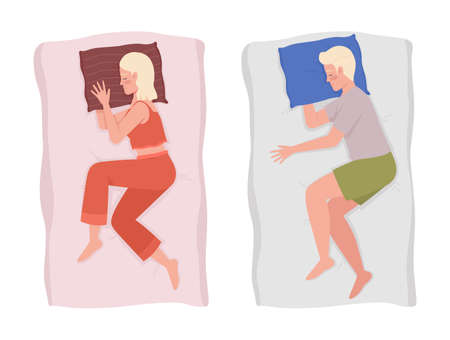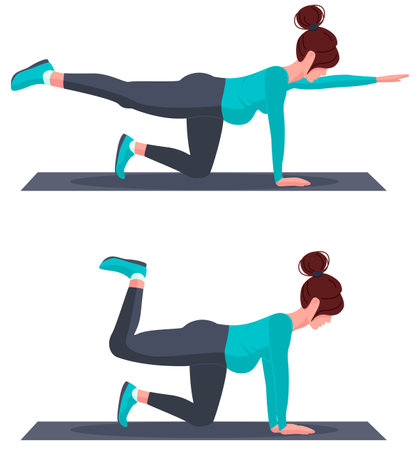Introduction: Sedentary Lifestyles in Modern Britain
Across the UK, daily routines have shifted dramatically over recent decades. Office-based roles, long commutes, and the increasing presence of digital technology have transformed how Britons spend their time. Whether it’s working at a desk, streaming television shows, or scrolling through social media, many now find themselves sitting for extended periods each day. These sedentary habits are not just limited to work hours; even leisure time is often spent indoors and inactive. As a result, the typical lifestyle in Britain has become more stationary than ever before. This widespread shift towards reduced movement is now recognised as a defining feature of modern British life, and its consequences—particularly for spine health—are becoming increasingly apparent.
2. The Relationship Between Sedentary Behaviour and Spine Health
Sedentary behaviour, particularly prolonged sitting, has become a defining feature of modern life in the UK. Whether it’s lengthy commutes on the Tube, hours spent at the office desk, or relaxing evenings in front of the telly, many Britons find themselves seated for the majority of their day. This lifestyle trend is more than just a cultural shift—it has significant implications for spine health, as confirmed by UK-based scientific research and expert medical advice.
The Science Behind Sitting and Spinal Stress
When we sit for extended periods, especially with poor posture, pressure on the lumbar discs increases significantly. According to a report by Public Health England and findings from the British Chiropractic Association, maintaining a seated position compresses the lower back up to 40% more compared to standing. Over time, this can lead to spinal disc degeneration, muscular imbalances, and chronic pain conditions common among office workers and students alike.
Key Impacts of Prolonged Sitting on the Spine
| Impact | Explanation | UK Expert Insights |
|---|---|---|
| Increased Disc Pressure | Sitting places higher pressure on spinal discs, accelerating wear. | NHS guidelines highlight regular movement to reduce risk. |
| Muscle Weakness | Core and back muscles weaken with inactivity. | BCA recommends strengthening exercises for prevention. |
| Poor Posture Habits | Slouching or hunching exacerbates spinal misalignment. | Chartered Society of Physiotherapy promotes ergonomic awareness. |
| Reduced Blood Flow | Lack of movement limits circulation to spinal tissues. | UK physiotherapists advise frequent breaks to boost blood flow. |
Expert Opinions from Across the UK
Many British health experts have raised concerns about the cumulative effects of sedentary lifestyles on long-term back health. Dr Sarah Jarvis, a well-known GP in London, notes that even short bouts of sitting can add up throughout the day and result in persistent discomfort or mobility issues. The Royal College of Chiropractors further advises incorporating micro-breaks into daily routines—standing to stretch every 30 minutes can make a meaningful difference in spinal wellbeing.
This growing body of evidence underscores the need for both cultural and individual shifts towards more active daily habits across Britain. By recognising how everyday behaviours impact our spines, we can take steps—big or small—to prioritise lifelong musculoskeletal health.

3. Everyday British Habits That Contribute to Sedentariness
In the UK, many of our daily routines subtly encourage us to sit still for long stretches, often without us realising the impact on our spine health. Commuting is a prime example: whether you’re catching the train from Surrey or driving down the M25 into London, most Brits spend considerable time seated in cars, buses, or trains. These journeys rarely offer opportunities to stand or stretch, turning travel time into extended periods of inactivity.
Screen use is another significant factor. The typical British workday often revolves around computers—whether in offices, co-working spaces, or home set-ups. After hours, winding down frequently involves more screen time, as we binge-watch a BBC drama or scroll through social media. This cycle means our spines get little respite from sitting.
Leisure habits further reinforce this sedentary culture. It’s quite British to head to the pub after work or relax at home with a cuppa and a good book. While these activities are comforting and part of our cultural rhythm, they usually involve staying put for even longer. Even weekend pastimes like visiting the cinema or catching up with mates over Sunday lunch tend to centre around being seated.
Collectively, these everyday habits—from how we commute to how we unwind—create a lifestyle where physical movement is often an afterthought rather than the norm. Over time, such routines can quietly take a toll on our posture and spinal wellbeing.
4. Signs and Symptoms: Spotting Spine Issues Early
Recognising the early warning signs of poor spine health is crucial for people across the UK, especially given our increasingly sedentary routines. While it’s easy to brush off minor discomforts as just part of daily life, paying attention to these symptoms can help you act before issues become chronic. Many in the UK might overlook these indicators, mistaking them for temporary aches or the result of a long commute or desk job.
Common Early Signs Often Overlooked
| Warning Sign | Description | Typical UK Context |
|---|---|---|
| Persistent Back Pain | Aches lasting more than a few days, whether dull or sharp, often ignored as “just a niggle.” | Sitting at work desks or in traffic during daily commutes |
| Morning Stiffness | Tightness in the back or neck after waking up, gradually easing with movement. | After a night’s sleep on an unsupportive mattress or sofa-bed |
| Reduced Flexibility | Difficulty bending, twisting, or reaching without discomfort. | Struggling with everyday tasks like tying shoes or gardening |
| Numbness or Tingling Sensations | Pins and needles in arms or legs, sometimes mistaken for poor circulation. | Sitting for prolonged periods at home or in the office |
| Unexplained Fatigue | Feeling unusually tired even after adequate rest, due to underlying spinal strain. | Lack of energy for daily walks or activities with friends and family |
Why These Symptoms Matter in Daily UK Life
The British weather might tempt us to stay indoors, and the culture of long working hours can encourage extended sitting. These habits increase your risk of developing spinal issues. Small signs like occasional pain after a day at your desk in Manchester or stiffness following a long train journey from London to Edinburgh shouldn’t be dismissed. Instead, consider them gentle nudges from your body to rethink your routine.
When Should You Seek Help?
If you notice any of these signs persisting for more than a couple of weeks, or if symptoms worsen over time—such as increasing numbness, severe pain, or weakness in limbs—it’s wise to consult your GP. Early intervention and awareness can make a significant difference in maintaining healthy spine habits and preventing future complications.
5. Public Health Perspective: The NHS and Spine Health Awareness
When it comes to spine health in the UK, the National Health Service (NHS) plays a pivotal role in raising awareness and providing essential support to those affected by sedentary lifestyles. With an increasing number of Brits spending their days at desks or glued to screens, the NHS has recognised the importance of addressing musculoskeletal health as part of its wider public health agenda.
The NHS offers a wealth of resources tailored for people concerned about back pain and posture issues. For instance, the NHS website provides practical advice on preventing back problems, from simple stretches you can do at home to guidance on setting up your workspace ergonomically. These tips are designed to fit seamlessly into daily life, making them accessible whether you’re working from home in Manchester or commuting through London’s Tube.
Beyond online guidance, the NHS runs national campaigns like “Better Back” which encourages people to take regular movement breaks, practise good posture, and seek early intervention if discomfort arises. Local GP surgeries and physiotherapy clinics often host workshops and drop-in sessions where individuals can learn exercises that strengthen the spine and improve flexibility—an important resource given how prevalent office work has become across the UK.
Additionally, the NHS collaborates with charities such as BackCare and Versus Arthritis to amplify messages around spine health. These partnerships help reach diverse communities, ensuring that resources are available whether you’re living in rural Scotland or bustling Birmingham. The focus is not just on treatment but also on prevention and education—empowering people to make small lifestyle changes that can have a big impact on their long-term wellbeing.
Ultimately, by promoting proactive habits and providing easy access to information and support, the NHS is helping Brits tackle the spinal challenges posed by modern sedentary living. This approach reflects a broader commitment to holistic health—recognising that looking after our backs is just as vital as looking after our hearts or minds.
6. Adopting a Balanced Lifestyle: British-Friendly Tips
Supporting your spine health doesn’t require a complete lifestyle overhaul; small, mindful changes can make a significant difference, especially when tailored to the UK’s unique routines and environment. Here are some practical, locally relevant tips to help you combat the effects of a sedentary lifestyle:
Rethink Your Commute
For many in the UK, commuting involves long hours on trains, buses, or behind the wheel. Consider getting off one stop earlier on the Tube or bus and walking the rest of the way. If you cycle to work—a growing trend in cities like London and Manchester—ensure your bike is fitted to support good posture. Even standing during parts of your train journey can provide relief for your spine.
Make Lunchtime Active
British weather may be unpredictable, but don’t let drizzle deter you from a brisk walk during your lunch break. Invite colleagues for a stroll around the block or explore nearby parks—many UK towns and cities are blessed with green spaces perfect for stretching your legs and recharging your mind. If working from home, set reminders to get up and move every hour, perhaps using popular apps or simply making a cuppa as an excuse to stretch.
Home Habits That Help
With remote work on the rise, ergonomic home setups are crucial. Invest in a supportive chair and keep screens at eye level—stacking books under your laptop works wonders. Try traditional British habits like standing while talking on the phone or taking short walks around your garden or local high street after dinner rather than heading straight to the sofa.
Create Movement Rituals
Incorporate gentle stretches or yoga into your morning or evening routine—a practice embraced by many Brits seeking balance amidst busy schedules. Local leisure centres often offer affordable classes suited for all levels.
Embrace Weekend Activities
Take advantage of the UK’s beautiful countryside and coastal walks by planning regular weekend outings. Whether it’s rambling in the Lake District, exploring National Trust properties, or enjoying city walking tours, these activities not only boost physical wellbeing but also nurture mental health.
By weaving these British-friendly habits into daily life, you’ll foster a more balanced rhythm that supports both spinal health and overall wellbeing—no matter how demanding your schedule may be.
7. Conclusion: Moving Forward for a Healthier Spine Culture
In summary, the impact of sedentary lifestyles on spine health in the UK is a growing concern, but it’s not insurmountable. By taking collective responsibility, both as individuals and communities, we can nurture a culture that prioritises movement and spinal wellbeing. It doesn’t require drastic changes—small, mindful actions truly make a difference. Whether it’s choosing to walk to the local shop rather than drive, standing up during your tea break at work, or joining a weekly yoga class at your community centre, every step counts towards supporting our spines.
Let’s encourage each other to embrace these everyday habits. Employers can foster healthier work environments with more ergonomic setups and regular movement breaks. Schools can introduce playful activities and posture awareness from an early age. Most importantly, let’s keep the conversation about spine health alive within families and social circles across Britain.
Cultivating a spine-healthy lifestyle doesn’t mean overhauling your daily routine overnight. Instead, it’s about weaving little moments of activity into the rhythm of British life—taking the stairs at the tube station, stretching whilst watching telly, or exploring one of the country’s many scenic parks on weekends. Through these small, sustainable shifts in our habits and attitudes, we can collectively move towards a future where better spine health is woven into the fabric of our society.


